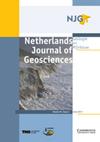以游戏为基础的投资组合方式加速地热开发
IF 2.3
2区 地球科学
Q3 GEOSCIENCES, MULTIDISCIPLINARY
Netherlands Journal of Geosciences-Geologie En Mijnbouw
Pub Date : 2020-06-02
DOI:10.1017/njg.2020.4
引用次数: 4
摘要
在过去的十年中,在荷兰,大多数运营商只开发了一个单一的双线。这些单一事件的学习效果并不理想,运营商只能在勘探风险相对较低的地区开发双重事件。这种“独立”的方法可以通过对具有相似地下特征的危险区域的集体方法得到显著改进。这种基于游戏的投资组合方法在石油和天然气行业中很常见,可以通过释放高前期地质风险地区的资源潜力,帮助加速地热行业的发展,有效地降低开发成本。该方法的基础是通过权衡第一口井的风险,将新信息部署到储层组合中,从而大大降低了地质风险。本文通过与“独立”发展的比较,为荷兰展示了投资组合方法的附加值。在独立的方法中,每个新项目都有同样的风险,因此相对来说无利可图。在投资组合方法的情况下,所有关于游戏的经验都被最佳地用于降低风险。在成功的情况下,由于在以前的项目中获得的经验,后续项目将有更高的成功机会。即使一个项目失败了,这也有助于增加后续项目成功的可能性。对于那些最初被认为对市场来说风险太大而无法开始发展的项目,基于项目的投资组合方法的信息价值(VoI)将有助于降低该项目的风险,即使在初始风险很高的情况下,它也会对市场的发展产生吸引力。在荷兰的几个地热区可以证明,通过采用投资组合方法,该区开发的概率会更高,成功开发的项目数量会增加,项目的平均盈利能力也会更高。另外五个优势是:(1)通过综合项目开发持续改进;(2)通过协同、效率和标准化降低成本;(3)优化地表热需求和基础设施;(4)结构研发和创新的可能性;(5)融资优势。优势相辅相成。采用组合方法对荷兰地热潜力的初步估计在90至275 Petajoules (PJ)之间。目前正在开发的约350个双重层,产量约为70个PJ,基于油藏的投资组合方法的优势价值为20亿欧元,适用于三个主要油藏:Rotliegend、三叠纪和侏罗纪/白垩纪。协同效应、效率效应和标准化的学习效果预期显著。本文章由计算机程序翻译,如有差异,请以英文原文为准。
Accelerating geothermal development with a play-based portfolio approach
Abstract Over the past decade in the Netherlands, most operators have only developed a single doublet. The learning effect from these single events is suboptimal, and operators have only been capable of developing doublets in areas with relatively low exploration risk. This ‘stand-alone’ approach can be significantly improved by a collective approach to derisk regions with similar subsurface characteristics. Such a play-based portfolio approach, which is common in the oil and gas industry, can help to accelerate the development of the geothermal industry through unlocking resource potential in areas marked by high upfront geological risk, effectively helping reduce costs for the development. The basis of the methodology is to deploy new information to the play portfolio by trading off with the risk of the first wells, resulting in a strong geological risk reduction. The added value of the portfolio approach is demonstrated for the Netherlands in this paper through a comparison with a ‘stand-alone’ development. In the stand-alone approach, each new project will be equally risky, and therefore relatively unprofitable. In the case of a portfolio approach, all experience about the play is used optimally for derisking. In case of success, subsequent projects will have a higher chance of being successful, due to the experience gained in previous projects. Even if a project fails, this may help in increasing the probability of success for subsequent projects. For plays that are initially considered too risky for the market to start developing, the value of information (VoI) of a play-based portfolio approach will help by derisking the play to such an extent that it becomes attractive for the market to develop, even at high initial risk. It can be demonstrated for several geothermal plays in the Netherlands that by adopting the portfolio approach, the probability of a play being developed becomes higher, the number of successfully developed projects increases and the average profitability of the project will also be higher. Five more advantages are: (1) continuous improvement by integrated project development, (2) cost reduction through synergy, efficiency and standardisation, (3) optimisation of the surface heat demand and infrastructure, (4) the possibility of structural research and development (R&D) and innovation, and (5) financing advantages. The advantages reinforce each other. A preliminary estimate of the geothermal potential of the Netherlands adopting the portfolio approach is between 90 and 275 Petajoules (PJ). For about 350 doublets being developed, producing about 70 PJ, the value of the advantage of the play-based portfolio approach is €2 billion for the three main plays: Rotliegend, Triassic and Jurassic/Cretaceous. The learning effects of synergy, efficiency and standardisation are expected to be significant.
求助全文
通过发布文献求助,成功后即可免费获取论文全文。
去求助
来源期刊
CiteScore
4.00
自引率
25.90%
发文量
14
审稿时长
>12 weeks
期刊介绍:
Netherlands Journal of Geosciences - Geologie en Mijnbouw is a fully open access journal which publishes papers on all aspects of geoscience, providing they are of international interest and quality. As the official publication of the ''Netherlands Journal of Geosciences'' Foundation the journal publishes new and significant research in geosciences with a regional focus on the Netherlands, the North Sea region and relevant adjacent areas. A wide range of topics within the geosciences are covered in the journal, including "geology, physical geography, geophyics, (geo-)archeology, paleontology, hydro(geo)logy, hydrocarbon exploration, modelling and visualisation."
The journal is a continuation of Geologie and Mijnbouw (published by the Royal Geological and Mining Society of the Netherlands, KNGMG) and Mededelingen Nederlands Instituut voor Toegepaste Geowetenschappen (published by TNO Geological Survey of the Netherlands). The journal is published in full colour.

 求助内容:
求助内容: 应助结果提醒方式:
应助结果提醒方式:


